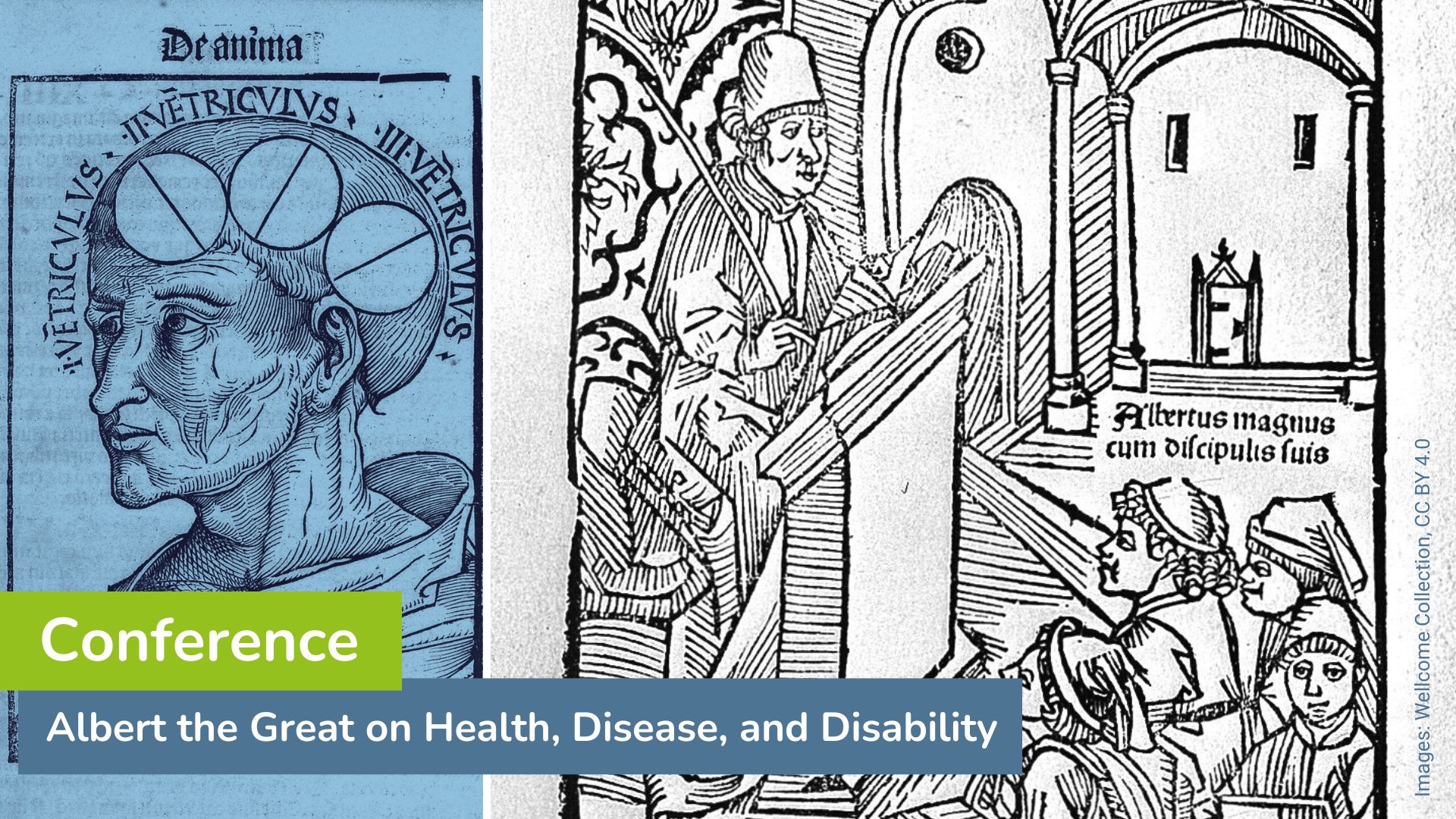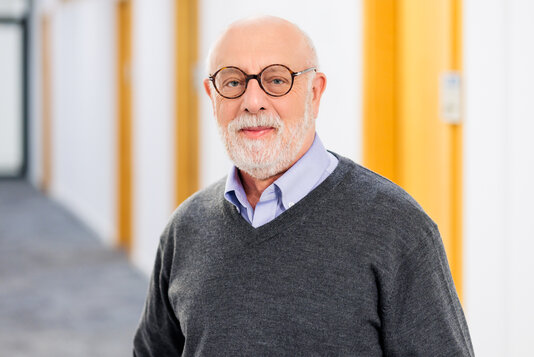
Albert the Great’s (Albertus Magnus) natural philosophy and observations of nature in the thirteenth century paved the way for modern science. This mini-conference focuses on Albert’s understanding of health, disease, and disability.

Albert the Great (Albertus Magnus; d. 1280) was a distinguished Scholastic theologian and natural philosopher who is celebrated as one of the outstanding forerunners of modern science, not least for his many experiments and observations of nature. Medieval medical students later used Albert’s massive commentary on Aristotle’s On Animals and Pseudo-Albert’s On the Secrets of Women for their discussions of comparative anatomy and physiology. This mini-conference examines aspects of natural philosophy in Albert’s thought, specifically his understanding of health, disease, and disability.
Welcome
Irven M. Resnick, University of Tennessee (Chattanooga)
Albert the Great’s Approach to Medicine
Henryk Anzulewicz, Albertus-Magnus-Institut
Coffee Break
Healing Metals? Alchemy and Medicine as Arts for Recovering Bodily Substances
Mario Loconsole, University of Salento
Lunch
Albert, the Rabbi, and the Balsam: On Some Strange Quotations
Görge Hasselhoff, TU Dortmund University
Coffee Break
The Notion of Complexional Form from Albert the Great’s De Vegetabilibus to Pharmacological Debates in the Medical School of Bologna
Marilena Panarelli, University of Palermo
Albert the Great on Fevers and other Diseases
Alessandro Palazzo, University of Trento
Coffee Break
Diseases, Defects, and Anomalies in the Embryological Process: Albert the Great and Virtus formative
Amalia Cerrito, University of Trento
Lunch
Taking Care, Taking Control: Women's Health-Care in the German Vernacular Translations of Ps.-Albert's Secrets of Women
Keagan Brewer, independent scholar
Coffee Break
Animals as Natural Physicians and Sources of Health
Irven M. Resnick, University of Tennessee (Chattanooga)

Prof. Irven M. Resnick
University of Tennessee at Chattanooga (USA) | Philosophy and Religion
Irven M. Resnick (Ph.D., University of Virginia) is a professor of Philosophy and Religion and has held the Chair of Excellence in Judaic Studies at the University of Tennessee at Chattanooga (USA) since 1990. Resnick has received numerous grants and awards, including a DAAD Research Visit Grant to Germany. He has been a Corresponding Fellow at the Ingeborg Rennert Center for Jerusalem Studies at Bar-Ilan University (Israel), and from 2003 to 2018 he was a Senior Associate at the Oxford Centre for Hebrew and Jewish Studies (UK), where he also directed four National Endowment for the Humanities summer institutes for university faculty. From 2006 to 2008, he was an associate of the sub-faculty of Near and Middle Eastern Studies at Oxford University’s Oriental Institute. For fall semester 2006, he was a Distinguished Visiting Fellow at Queen Mary, University of London.
Irven Resnick has published nineteen volumes (as author, translator, or editor) and more than sixty academic journal articles.
Website
Prof. Alexandra Cuffel
Ruhr University Bochum, CERES | Jewish Religion in Past and Present Times
E-mail: alexandra.cuffel@rub.de
Prof. Alexandra Cuffel
Ruhr University Bochum, CERES | Jewish Religion in Past and Present Times
E-mail: alexandra.cuffel@rub.de
Alexandra Cuffel is Professor of Jewish Religion in Past and Present Times at the Center for Religious Studies, Ruhr University Bochum. Until 2012 she has been Adjunct Professor of History at the College of New Jersey and Adjunct Assistant Professor at the Jewish Theological Seminary, NYC. From 2004 to 2008 she was Assistant Professor of pre-modern World History at Macalester College. Prior to that she was Assistant Professor of Medieval History at Virginia Polytechnic Institute and State University and Visiting Professor at the University of Massachusetts, Amherst. She received several fellowships, among them a fellowship from the American Council of Learned Societies in 2007, the Women’s Studies in Religion Fellowship from Harvard Divinity School in 2006, and a fellowship from the Dorot Foundation at the Hebrew University of Jerusalem in 1996.
Her research focuses on relations between Jews, Christians and Muslims during the Middle Ages, specifically on the intersections of religious polemic, medical theories and gender both in Western Europe and the Middle East. Further research interests are shared saints’ cults and festivals in the medieval and early modern Mediterranean and "racial" attitudes in the Middle Ages.
Website